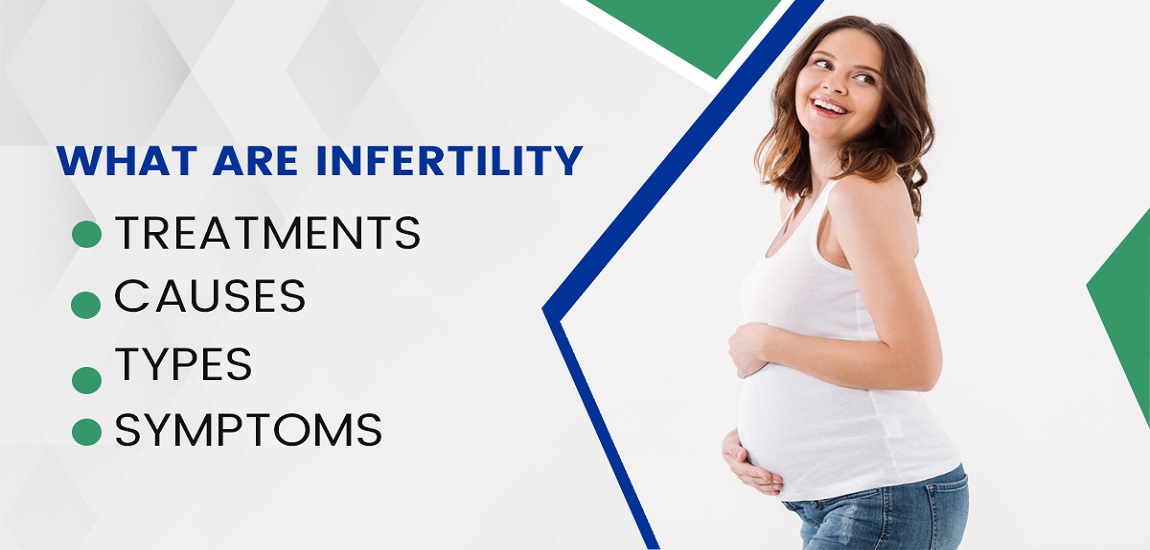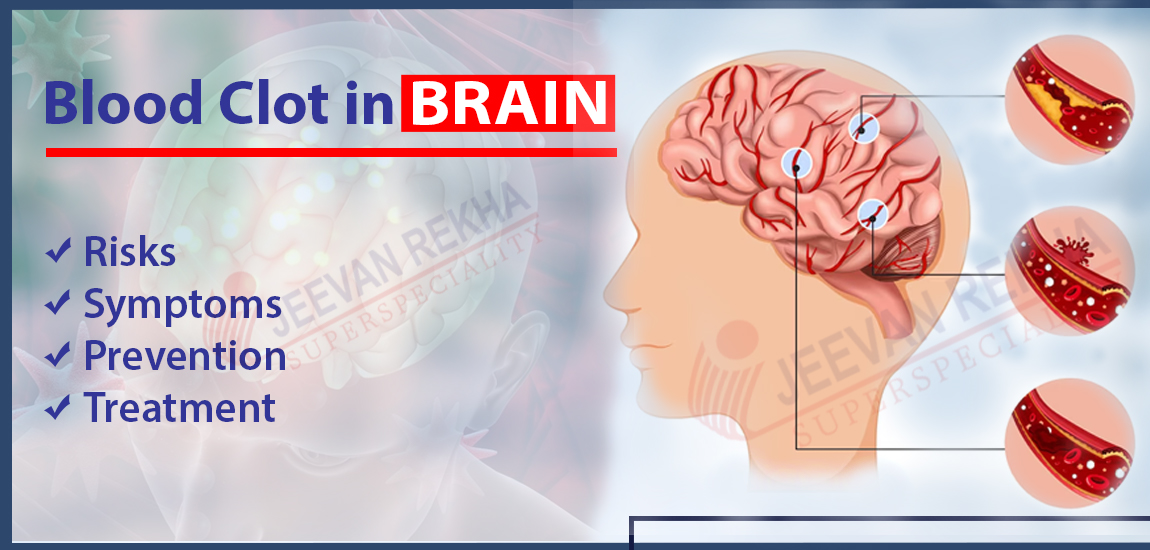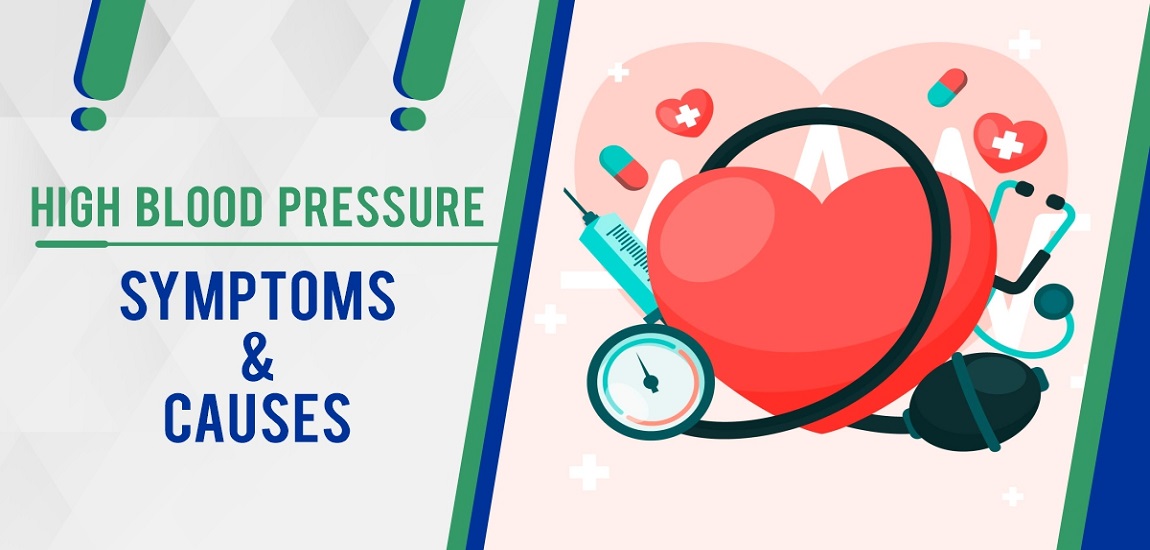
- By JRSH Admin
- In Health and Tips,
- Posted June 07, 2022
What are Infertility, Treatments, Causes, Types & Symptoms
When a person is unable to become pregnant after four to six months of regular unprotected sex, depending on their age, it is called infertility.
Having an infertility problem doesn't necessarily mean that either parent is sterile. However, it can indicate that one of the partners has a medical problem that needs to be addressed.
Nearly half of the couples have been able to have a child through medical aid, whether naturally or through medical assistance. It is not always possible to identify the cause of infertility after all tests have been performed on some couples. Unexplained infertility is the result of incomplete testing.
Infertility Causes
Causes of infertility in women
Problems with ovulation (the release of an egg from the ovaries) are the most common cause of infertility. The release of an egg can be prevented by certain problems, whereas it may not be prevented by others during some cycles.
Several factors can affect ovulation:
- Polycystic ovary syndrome (PCOS)
- Thyroid problems – ovulation can be hampered by underactive and/or overactive thyroid glands
- Premature ovarian failure – the ovaries fail to function before the age of 40
Surgery:
The fallopian tubes, which connect the womb to the ovaries, can be damaged and scarred during pelvic surgery. Surgical procedures for the cervix are sometimes associated with scarring or shortening.
Cervical mucus problems:
The mucus in your cervix becomes thinner during ovulation, making it easier for sperm to move through. When the mucus isn't working properly, it can make conception more difficult.
Fibroids:
It is possible to lose fertility due to noncancerous growths around the womb called fibroids. Some of them may inhibit the attachment of a fertilized egg in the womb, or they may block a fallopian tube.
Endometriosis:
The term endometriosis refers to a condition in which small pieces of the endometrium of the womb spread to other parts of the body including the ovaries. Ovaries and fallopian tubes may be damaged, resulting in infertility issues.
Pelvic inflammatory disease:
The womb, fallopian tubes, and ovaries can be infected with Pelvic Inflammatory Disease (PID).
Most commonly, it results from a sexually transmitted infection (STI). In the case of PID, the fallopian tubes may become damaged and scarred, making the implantation of eggs nearly impossible.
Cancer and its treatment:
Female fertility is often impaired by certain cancers, especially reproductive cancers. Chemotherapy and radiation both influence fertility in women.
Infertility in men
Fertility depends on a variety of factors, including the production of mature, healthy sperm. Several factors can influence the production of sperm. Some obstacles may prevent sperm from reaching eggs. Scrotum temperature can also affect fertility. These factors cause infertility in men:
Sperm Disorders:
The cause of sperm problems can be inherited. Some lifestyle choices can reduce sperm counts. Taking certain medications and smoking can lower sperm counts.
There are also many other reasons for low sperm counts, such as long-term illness (such as kidney failure), childhood infections (such as mumps), and hormone or chromosome problems (such as low testosterone).
Varicoceles:
Swollen veins in the scrotum are varicoceles. About 16 percent of men have varicoceles. These are more prevalent in infertile men (40 out of 100). They interfere with proper blood drainage, reducing sperm production.
You may have varicoceles that cause blood to flow backward from your belly to your scrotum. This makes your testicles too warm to produce sperm. As a result, you will have a lower sperm count.
Immunologic Infertility:
The body of some men produces antibodies that attack their sperm. Infection, surgery, or injury can lead to the production of antibodies. These antibodies block the movement and function of sperm.
The exact mechanism by which they lower fertility is not yet known. It can prevent sperm to reach the fallopian tube and enter an egg.
Hormones:
Pituitary glands are responsible to make sperms, they tell the testicles to make sperms. Low hormone levels can cause low sperm count.
Medication:
Various medications can also cause infertility in men, It can change sperm production, function, and delivery. Health-related problems are responsible for poor sperm growth are:
- depression
- digestive problems
- high blood pressure
- anxiety
- infections
- cancer
Infertility Types
There are mainly two types of infertility:
- Primary Infertility. A couple with primary infertility has not conceived after trying for a minimum of 12 months without using birth control
- Secondary Infertility. The second stage of infertility occurs when they have previously conceived but are no longer able to do so.
Infertility Symptoms
The symptoms of infertility in women include:
- Pain during sex: The presence of pain during sex, or dyspareunia, may indicate an underlying condition that can negatively impact fertility. Infections, endometriosis, and fibroids are some examples of these conditions.
- Painful periods: The flow of blood can be light or heavy for some women, while others experience painful cramps and heavy periods regularly. If you have very heavy, painful periods, you may be suffering from endometriosis, a condition in which tissues normally found in the womb are present somewhere else in the body.
- Dark or pale menstrual blood: This may be a sign to be concerned if menstrual blood is consistently paler than normal. During a person's first period, menstrual blood is usually bright red, and it may become darker as the period progresses.
Endometriosis can also be detected by passing old, dark blood before your period. Those who experience other symptoms may want to consult their doctor.
- Irregular menstrual cycle: Menstrual cycles vary in length from person to person and over time. However, many people happen to have a regular cycle, meaning they have roughly the same amount of time between their periods. Unusually irregular cycles, as well as missing periods, can contribute to infertility, as it indicates that a woman is not ovulating regularly.
A woman releases an egg when she ovulates. Ovulation can be irregular for a variety of reasons, including polycystic ovary syndrome (PCOS), being overweight, poor thyroid function, and obesity.
- Hormone changes: Various hormone changes can affect the women getting pregnant. Fluctuations in hormones can cause:
- Weight gain
- Severe acne
- Loss of sexual desire
- Nipple discharge
- Facial hair in females
- Obesity: Women who underlying into obesity have a lower chance of getting pregnant and have a higher risk of complications in pregnancy.
- Not getting pregnant: Getting pregnant after a certain amount of time after trying is the most common sign of infertility.
When a woman has been trying to become pregnant for at least one year without success, her doctor may diagnose her with infertility. After 6 months of trying, a woman over 35 years of age may be infertile if she hasn't become pregnant.
Risk factors related to Infertility
- Age: Women's fertility decreases as they age.
- Tobacco use: Pregnancy rates may be reduced by smoking. Women who smoke have more miscarriages.
- Alcohol: Alcohol is injurious and it leads to infertility.
- Obesity: Being overweight and obese may increase the risk of infertility.
- Mental Health: Stress and depression can affect reproductive hormones. These factors can prevent women from ovulating normally.
Infertility Diagnosis
A general physical examination will be performed on the woman, and the doctor will ask her about her medical history, her medications, her menstrual cycle, and sexual habits.
Also, a gynecological examination and a number of tests will be performed:
- Blood test: A woman's hormonal levels can be assessed with this test, as well as her ovulating status.
- Hysterosalpingography: It is determined whether the fluid travels properly out of the uterus and into the fallopian tubes by injecting fluid into the woman's uterus and taking X-rays. If there is a blockage in the tube then surgery may be required.
- Laparoscopy: An abdomen and pelvis are inserted with a thin, flexible tube that has a camera at the end, allowing a doctor to view and examine the fallopian tubes, ovaries, and uterus. There may be signs of endometriosis, scarring, blockages, and other uterine or fallopian tube irregularities.
Other tests can also be done to find out infertility in women
- ovarian reserve testing
- genetic testing
- pelvic ultrasound
- thyroid function test
Infertility Treatments
There are various treatments available If you and your partner are planning to have a baby and did not conceive.
1. Artificial insemination (AI): During ovulation, sperm is placed inside your reproductive tract during artificial insemination (AI) to help you become pregnant. Artificial insemination can be done without any fertility drugs if you are ovulating normally. You can increase your chances of getting pregnant with AI and fertility drugs if you have problems ovulating.
2. Intrauterine insemination (IUI): The sperm are placed directly in the fallopian tubes, increasing the likelihood that the sperm will meet the egg, by using a thin catheter.
3. In vitro fertilization (IVF): During IVF, sperm fertilizes your eggs in a fertility clinic or laboratory. After that, one or more of the embryos will be transferred into your uterus in hopes that the embryos will implant and lead to a pregnancy
4. Natural cycle IVF: In vitro fertilization without hormone injections is known as natural cycle IVF. Rather than ovulating when you are ready, your doctor will monitor your natural cycle and retrieve one egg when you are.
As with traditional IVF, you will then have your egg fertilized in a fertility clinic or laboratory, and the resulting embryo will be transferred into your uterus.
5. Donor eggs: In this process, the donor eggs will implant into your uterus similar to IVF. Anyone can be your donor as per your preference or someone you have matched. Biologically you are not the mother of the child, but you are still listed as the mother of the child
6. Surrogacy: A surrogacy is a process in which another woman carries the baby of the couple. In almost all cases, the parents undergo IVF and the embryo is implanted in the uterus of the surrogate. The baby is genetically related to both parents, but not to the surrogate.
7. Egg freezing: Egg freezing entails retrieving 10 to 20 of a woman's eggs in a similar procedure to IVF, flash-freezing, and storing the eggs. When you're ready, one or more of the frozen eggs is thawed, fertilized, and implanted into your uterus.
Tags
Blog Search
Latest Posts
-
Skin Ulcers Uncovered: Causes, Types, Symptoms, and Healing Options
January 13, 2026 -
Is Coconut Water Safe During Pregnancy? Benefits, Risks & Myths
January 08, 2026 -
Dark Circles Under The Eyes: Causes, Home Remedies and Treatments
December 21, 2025 -
बर्ड फ्लू के लक्षण, कारण, उपचार और बचाव के उपाय जानें
December 04, 2025 -
Best Diet Plan for Menopause Weight Management
November 25, 2025




